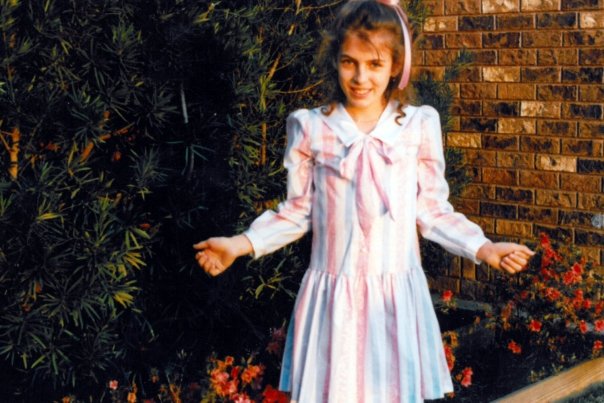In every school, there are those children—gifted and hyper-conscientious—who stay behind after the bell has rung, who do the homework even when no one collects it, who chase perfection out of a desperation to stay afloat in a system that offers no life raft for those who do too well to be noticed.
These are the kids whose minds run fast but whose pencils stall; whose ideas are luminous but whose spelling is approximate; whose reading is fluent but whose eyes jump lines, reread words, miss the centre of the sentence entirely. They are praised for their maturity and diligence, but few stop to ask why a child would need to be that diligent just to keep up.
I was one of those children.
Growing up hyperlexic and dysgraphic
I could read early and with great hunger—I devoured books. Adults called me precocious. But writing—actual, expressive, generative writing—did not come until the sixth grade, and even then, spelling remained a territory I never truly conquered. I still confuse vowels and endings are hard, since I learned to read through memorisation, not through sounding things out and was prone to only scan the start of words. Despite these difficulties, I managed. I learned to triple-check every sentence. I read things backward to surface errors. I constructed elaborate mental templates to reduce risk. My workaround strategies were painstaking, self-taught, and ultimately effective.
And so, I succeeded. I earned straight A’s. I graduated with a 3.69 GPA in a joint major in English and Women’s Studies. On paper, I was thriving. But what the paper could never show was the time it took me to write a single paragraph, the anxiety I felt before hitting submit, or the way my body held the stress of constantly scanning for mistakes. The academic achievement was real, but so was the toll—and the toll has never been fully named.
The silent grief of over-functioning students
For every child who falls behind and gets flagged for assessment, there is another child who hides their struggle behind excellence, and that child is often left entirely alone. In the name of fairness, of efficiency, of focusing limited resources on those who “need it most,” schools have created a hierarchy of suffering in which only those who fail publicly are allowed support. This is a form of collective punishment—one that does not look like discipline, but rather systemic suffering. When students are punished for succeeding despite their challenges, the education system reveals its allegiance not to equity, but to performance.
Dyslexia BC has been clear that students with dyslexia—especially those who appear to be doing well—often receive little or no support in school. They have stated directly that “many children with dyslexia are not identified and go unsupported,” and they advocate for universal screening precisely because “students are falling through the cracks.”
Cathy McMillan, speaking for Dyslexia BC, has explained that “many students with dyslexia develop coping mechanisms and appear to be doing well academically, but the effort it takes to keep up is immense.” Left To Struggle: Students With Dyslexia, Other Learning Disabilities, Find Little Support
These are the students who are praised for their maturity, their attention to detail, their drive to succeed—but what remains unspoken in school files and report cards is the toll: the hours lost to over-correction, the anxiety baked into every assignment, the inner world shaped by vigilance, fatigue, and constant self-monitoring.
To be gifted and dyslexic is to live in constant tension between your ideas and your tools. You know what you want to say, but writing it is slow. You understand the reading, but your eyes trick you. You see the structure, but the symbols slip through your fingers. And yet, you make it work. And because you make it work, schools assume you’re fine.
Recognition as repair
Dyslexia BC offers a clear and compassionate vision grounded in the belief that no child should be left to struggle in silence, that brilliance never cancels out need, and that early, evidence-based support belongs to every learner. They reject models that wait for collapse before responding, and instead advocate for universal screening, structured literacy, and inclusive instruction that affirms the full complexity of how children learn.
They build tools for families, language for advocacy, and cultural pressure for systemic change. They fight not just for awareness, but for implementation. And they do all this while affirming the dignity and worth of children who have been told—through omission, through silence, through policy—that their pain is not grievable.
Ending the punishment of success
When support is withheld from children simply because they cope well enough to escape notice, the result is a tiered system of care that rewards breakdown and punishes resilience. This is collective punishment by omission, and it plays out every day in classrooms across this province. Gifted dyslexic students are asked to do double the work just to stay even with their peers, and then are told that because they succeed, they must be fine. But no amount of success cancels out the need for support. No GPA, no report card comment, no awards ceremony ever reflects the hours spent re-reading, re-writing, or recovering from the strain of doing what others do with ease.
Grief and solidarity
I grieve for the child I was—the one who masked so well even I believed I was simply undisciplined. And I stand with the children and families coming up behind me, who deserve more. The problem was never personal; it was structural—a system that confuses coping with capacity and brilliance with resilience. Dyslexia BC is building something better: a system that recognises struggle early, values children’s inner lives, and refuses to let silence stand in for support.







